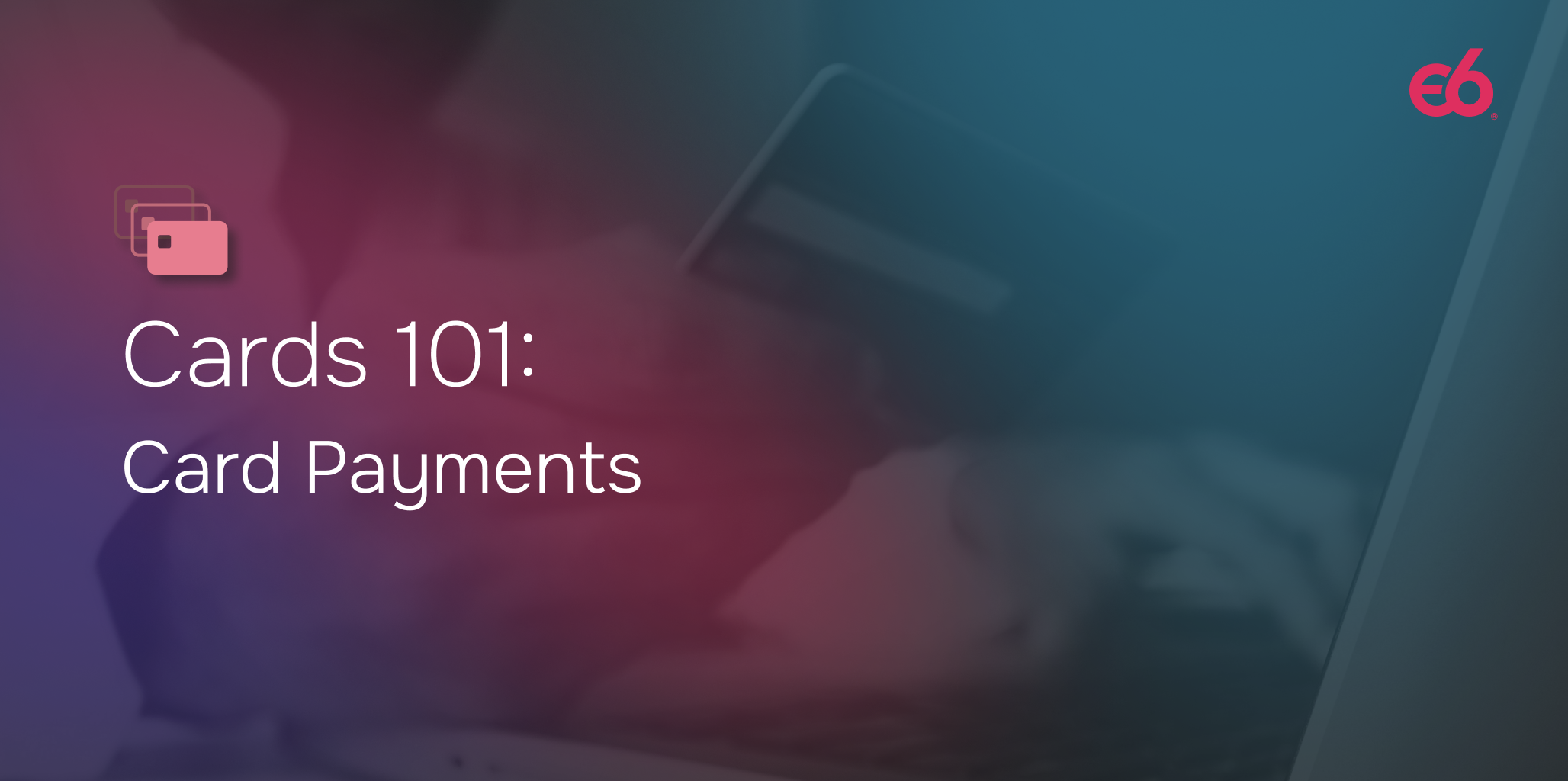Cards 101: Card Payments

This is the second post in our Cards 101 series. You can read the first post here.
What is a card payment?
- Purchase: A payment to a "merchant" in exchange for goods or services rendered
- Cash Withdrawal: A payment made in exchange for physical funds being provided
- Refund: A payment from a merchant made when goods or returned or services were not rendered
- Authorization (x1xx) - A request to "hold" funds on an account for later processing
- Transaction (x2xx) - A request to post a transaction to an account
- Reversal (x400) - A request to undo a previous card payment event
Card network types
Dual message systems
Single message systems (SMS)
Single message systems (SMS) execute a card payment using a single step process. This type of network is used for PIN debit and ATM transactions such as Maestro, Pulse, etc. When a card is used for a single message card payment, a transaction request (x2xx) is made. As this is the only step of the card payment, the issuer decisions the request. If the request is approved, then a transaction is posted to the account. All SMS requests are processed in near real-time using online processing.
Issuer processing
Issuer processors are a special type of service provider that provide connectivity with card networks, card management, and card payment processing for an issuer. Using an issuer processor removes the need for an issuer to build out card capabilities or connect with different card networks. A key part of what an issuer processor does for most issuers is decision card payments.
Card payment decisioning
| Category | Question |
Example Checks |
| Card payment | Is the request legitimate? | Card expiry match, cardholder name match, billing address match, security code match, PIN match, cryptographic match, 3DS, transaction fraud decisioning, etc. |
| Card | Is the card in a usable state? | Card existence check, Card block check, card expiration check, card state check, card token state check, card level controls check, etc. |
| Account | Is the underlying account in a usable state? | Account block check, account level control check, balance check, etc. |
| Product | Does the product allow for the requested use? | Product level control check, etc. |
| Other | Are there any additional checks to be performed? | SKU check, expense policy check, credit risk decisioning, etc. |
Key things to look for in an issuer processor
- PCI-compliant cloud: Issuers don't want to take on the burden of being PCI-compliant. Issuer processors that host their platforms in PCI-compliant cloud infrastructure give you the ability to easily access card capabilities without the hassle.
- Flexibility: If all card products were the same, only big players would be able to survive. Issuers need ways to stand out in a crowded market. By having flexibility in your card payments, you can create unique propositions that stand out from the crowd.
- Global coverage: You don't know where your business might take you. Some issuer processors only operate in one country and can leave you scrambling if you plan to expand into additional markets.
- Performance: The typical amount of time given to an issuer to decision a card payment is about 6 - 7 seconds. Your issuer processor should be striving to drive processing time towards zero.
- Scalability: If your issuer processor can't scale to your biggest demand times, then neither can your product. The ability to maintain performance at peak demand means your customers can rely on your cards no matter what.
How E6 lets you take card payments to the next level
- Launch prepaid, virtual or physical cards for consumers or business. Add any configurations and controls you want, from spend to location, rewards and interest.
- Launch quickly and efficiently, without being bogged down by legacy systems.
- Customize your offering, whether you’re targeting consumers with cash back rewards or businesses with corporate expense tracking.
- Take control of your program from day one, with minimal reliance on third-party service providers.
About Episode Six
Episode Six is a global provider of enterprise-grade card issuing and ledger infrastructure for financial technology companies, banks, and brands. Episode Six delivers the innovative capabilities needed to compete with disruptors and lead the market. Flexibility, adaptability, and resilience are built into the core of Episode Six's platform, ensuring clients maintain a market-leading position. Episode Six operates in over 45 countries, powering 70+ enterprise customers globally, with an expanding team located in the US, Canada, UK, Europe, Japan, Singapore, Hong Kong, Australia, and India. Investors include HSBC, Mastercard, SBI Investment Co Ltd, Anthos Capital, Avenir, and Japan Airlines.
